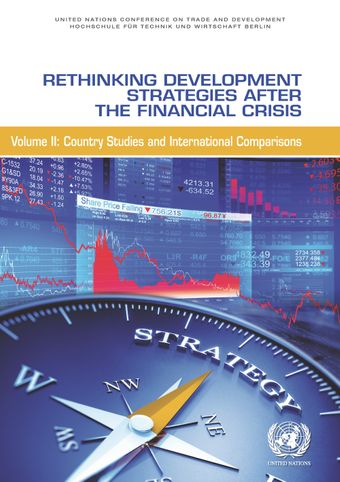Macroeconomic policy for a Social-Oriented development strategy - The Brazilian Case

- Authors: Pedro Rossi and André Biancarelli
- Main Title: Rethinking Development Strategies after the Financial Crisis , pp 71-80
- Publication Date: March 2016
- DOI: https://doi.org/10.18356/a9385ab8-en
- Language: English
In the recent debate on the Brazilian growth model, the accuracy of the economic tripod (inflation targeting, primary fiscal target and floating exchange rate regimes) was pointed out as being responsible for lowering Brazilian economic growth and hindering its development. However, over time the macro regime has proved flexible, allowing changes in the form of management of policies within the same institutional framework, especially after the 2008 crisis. Within this context, the present chapter aims to discuss the relationships between these macroeconomic policy fronts and a social oriented development strategy for the Brazilian economy. The background question is whether the actual macroeconomic regime, inherited from an orthodox perspective is compatible with the deepening of a social-oriented development, which depends on a strong role of the State, income distribution and the expansion of social infrastructure.
© United Nations
ISBN (PDF):
9789210575577
Book DOI:
https://doi.org/10.18356/daa61e24-en
Related Subject(s):
Economic and Social Development
Sustainable Development Goals:
Countries:
Brazil
-
From This Site
/content/books/9789210575577c010dcterms_title,dcterms_subject,pub_keyword-contentType:Journal -contentType:Contributor -contentType:Concept -contentType:Institution105
/content/books/9789210575577c010
dcterms_title,dcterms_subject,pub_keyword
-contentType:Journal -contentType:Contributor -contentType:Concept -contentType:Institution
10
5

